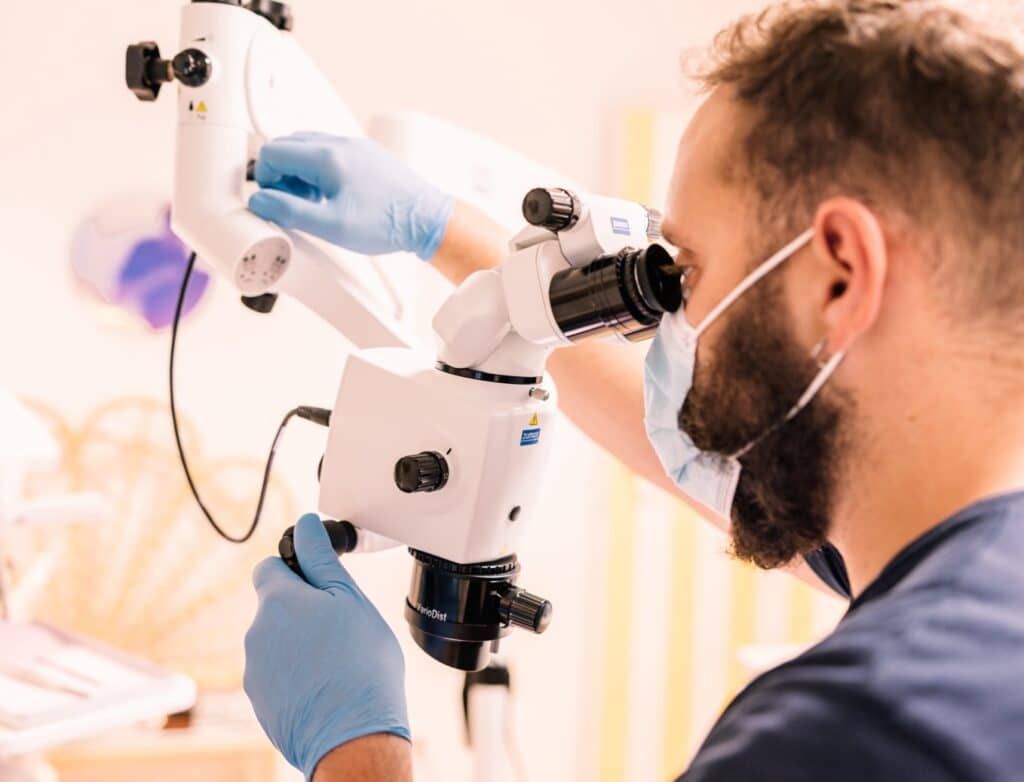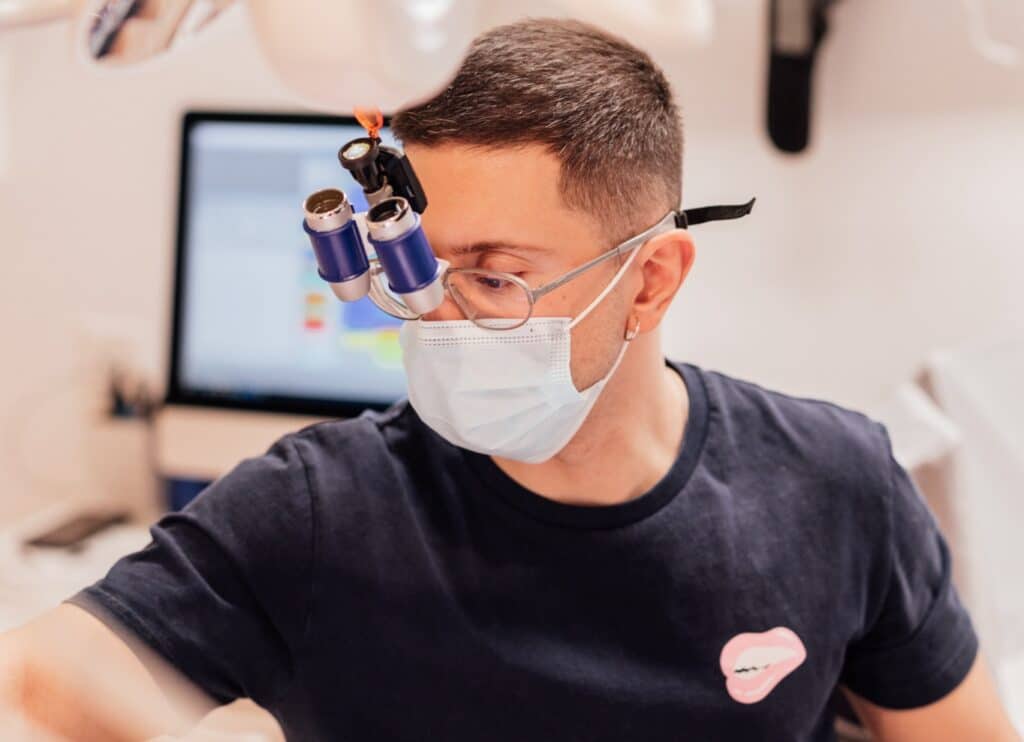Root canal treatment
When you’ve waited (a little too long) to have your tooth decay treated…
If decay progresses as far as the nerve of the tooth, endodontic treatment (root canal treatment) becomes necessary in order to heal and preserve the tooth.
Root canal treatment at CHD
As each patient has a unique dental anatomy, an X-ray of the tooth to be treated is taken to measure the length of the roots and analyse their structure. This helps the dentist to facilitate disinfection. A quick check is also carried out to identify any pathology requiring priority treatment.
Discover this treatment in video

Rates
| Root treatment | from 400 to 1200 |
Exact quotation before treatment.
*You can pay in installments.
Fair & transparent prices
We strive to maintain unbeatable value for money: reasonable prices, which have not changed since 2016, for quality of care that has earned us numerous awards:




Advice
After root canal treatment, avoid chewing on the treated tooth until the final restoration has been fitted. Eat a soft, lukewarm diet to minimise the risk of fracture. This will allow your tooth to heal properly and ensure that the treatment lasts.
When necessary, we use an operating microscope with a magnification of up to x40, enabling us to provide top-quality treatment even for the most complex cases.
Dr Costa, Dentist, CHD Clinics Lausanne and Yverdon – Nord Vaudois.
Next appointment
Your next appointment (recall) is scheduled as part of the personalised follow-up offered by CHD. This is based on your lifestyle, the quality of your saliva and other parameters, to ensure that your oral health remains at an optimum level. And you don’t have to worry about it any more, we’ll take care of reminding you: text message, letter, email, it’s your choice!
Our dental clinics
Learn more about endodontics
What is endodontics?
Endodontics is a specific practice within dental medicine, often performed by your dentist, although it remains relatively unknown.
An endodontic treatment (also known as root canal treatment, canal therapy, or even devitalization) involves treating the internal part of the tooth: the pulp when it is damaged.
In practical terms, endodontic care consists of removing the pulp (the living part) and disinfecting the internal canals. The tooth must then be restored by your dentist, either through a standard filling using a specific composite material or by placing an implant or a dental crown.
Why root treat a tooth?
A tooth with damaged pulp (for example, due to inflammation) causes severe pain and must be treated as quickly as possible to prevent the tissue infection from worsening, which would increase the pain in the tooth and potentially spread to the gum.
How is a root canal treatment performed?
A root canal treatment is completely painless as it is usually performed under local anesthesia. In practice, the dentist opens the tooth to access the inner part to be treated, removes the infected tissue, cleans and disinfects, seals the canals, closes the tooth, and completes the final restoration.
What happens after a root canal treatment?
After a root canal treatment, the treated tooth is weakened. To strengthen it, the dentist typically restores it with an inlay/onlay or a dental crown. In rare cases, the root canal treatment may fail, and if the devitalized tooth is severely damaged, the practitioner may consider extracting it and placing an implant and a dental crown to replace the missing tooth.